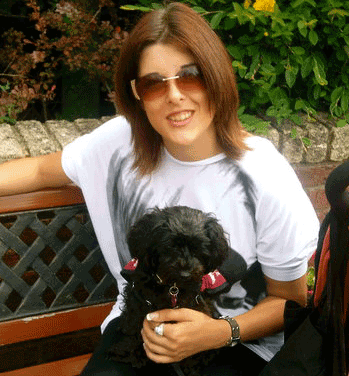
This week I was very pleased to be invited to talk at the Specialist Skills Network which has been set up by the National Gallery and the Museum of London. On the day, a number of professionals from different galleries and museums situated around London came together to share experiences and expertises regarding planning events for children with Special Educational Needs.
The planned activities already being held sounded wonderful and the enthusiasm in the room for ensuring that disabled children and those with additional needs were able to access and experience the exhibitions fully was inspiring. I was there to fully support the scheme but also to add a note of caution as requested by Orlagh from the National Gallery.
As I am sure you are all aware, Enhance the UK is a charity which very much focuses on the perception of disability. Now the perception in the room was very positive as I had expected it to be. Those attending the network are there because they are already engaging with disabled children and young people. I wanted to stress the importance of ensuring that all staff working in a venue who interact with the public having Disability and Communication awareness. To do this I was able to highlight several times I have been unable to fully access museums and other heritage sites, simply because the frontline staff were unaware of what they have to offer. I have lost count the number of times I have been told that a loop system is not available for audio tours to find out at the end that this wasn’t true.
Worse still are the staff who won’t listen to my needs and insist they know better. I have frequently been told to try in the ear headphones as they are very loud, after I have told them I wear a cochlear implant and have no natural hearing and cannot use headphones. When I refuse this opportunity I am then given a look as if to say, ‘oh dear she’s trouble.’ Taking a hearing dog into a museum can also be a stressful experience. Constantly having to repeat that she is an assistance dog and is therefore allowed in becomes tiring after a while. As is the attitude of some staff who have to repeat themselves as you miss what they say when they are not looking at you. All the examples I have given are hearing related simply because these are my experiences, however I know from talking to other people that regardless of the disability there are barriers that need to be overcome.
If I am sounding very negative about staff then I must stress that I don’t mean to be. The majority of staff who work in museums and galleries are very helpful and will do everything they can to ensure that you can fully access the exhibitions. I believe that those staff that I have spoken about already who aren’t helpful are only like this because they do not have an understanding of disability and therefore simply do not know how to react.
Unfortunately negative experiences are likely to put people off attending heritage sites and that is a real shame. I was delighted to see that a key objective of the Specialist Skills Network was how to ensure that disability awareness and the good practices already developed are spread throughout all teams at the museums and galleries. This to me is a very positive step in the right direction.
